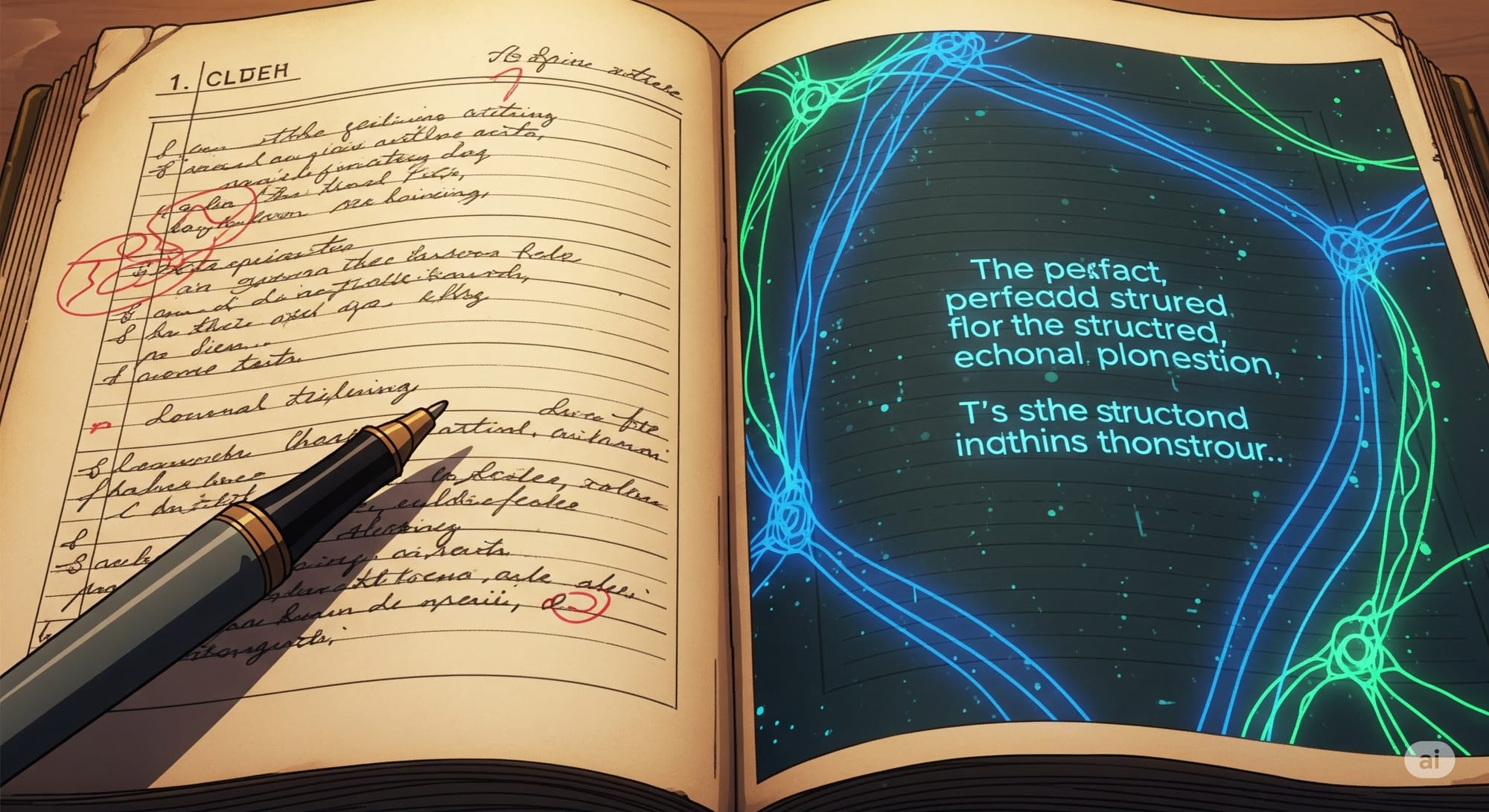Rip It Up or Skip Ahead?
On Writing, AI, and the Quiet Fade of Formative Struggle

Hua Hsu's recent New Yorker piece, 'What Happens After A.I. Destroys College Writing?', got me thinking about my own relationship with the written word—and what might be quietly lost as AI reshapes how students learn to express themselves.
Having suffered through the torrents of red ink that soaked my undergraduate essays, I came out the other side with something unexpectedly valuable: a stronger sense of style, a more deliberate fluency, and an enduring awareness of my own voice. Not bad for a mechanical engineering student.
Those late-night writing sessions, though grueling, were formative—not just academically, but personally. They taught me how to clarify my thinking under pressure, how to revise with humility, and how to make arguments that could stand on their own. That’s why I have mixed feelings about the rise of AI tools that now stand in for that process. I’m not dismissive—I see the cultural sea change underway, and I recognize its inevitability.
I also wonder what we lose when struggle becomes optional, and when fluency is borrowed instead of built.
I realize this might sound like another hand-wringing lament from someone mourning a tradition the next generation never asked to inherit. Maybe it is. Maybe this is my “Okay, Boomer” moment—wrong generation, right vibe. But I’m not nostalgic for the struggle; I’m aware of what the struggle taught me. And I worry that if we design systems that let students skip the hard parts by default, we may also be skipping the parts that quietly shape them.
I’ve already said goodbye to handwriting—my freehand is illegible at best, and cursive is a memory’s laughter echoing down a dark tunnel. Arithmetic? That lives in spreadsheets and calculator apps now. These aren't daily tools anymore. They're phantom limbs: atrophied, vestigial, but still faintly there.
And I wonder—do I miss them because I once stood on them, or is that just misplaced nostalgia?
It’s not that I want to return to long division or exploded Paper Mates. But I recognize that some of the confidence I carry today—the quiet sense that I can orient myself, that I know how to think through difficulty—was built when I had no choice but to work without a net. That scaffolding remains, even if the tools have drastically changed.
Ultimately, the contradictions I sit between aren’t about condemning anyone else’s choices. They’re about my own misgivings—about the questions that rise not from superiority, but from memory. I think about the things someone else might not get to experience, not because they’re missing out, but because the world changed before they had the chance.
Anyway, their story isn’t mine to write. Their travails are their own. What they miss isn’t missing for them.
Maybe that's the clearest sign that something has shifted: what once felt essential—those red-ink revisions, those stubborn late-night drafts—may now seem optional. And maybe they are. Maybe the world will teach its lessons another way. Meanwhile, like handwriting, those old methods will fade into phantom sensations: faint reminders of where we once stood, and what it took to stand there.
So here I am: the kid whose essays on British poets came back looking like they’d fought at Ypres, now riffing with not one but two AIs on how writing has been transformed, diminished, unburdened, reborn—pick your term. Very irony. Much contradictory. Wow.
“Rip it up and start again.”
—Orange Juice
It’s tempting, isn’t it? To say that the old ways of writing—the late-night essays, the red ink, the mental sweat—were just a phase. Outdated. Inefficient. Easy to discard.
And maybe they were.
But before we rip it up, it’s worth asking: are we starting again, or just skipping ahead?
Postscript
Even now, those undergraduate writing experiences resurface in unexpected ways—riffs and hooks bouncing off LLMs, the old forms echoing back through these new instruments. What I once labored to learn by hand, I now remix through machines. Maybe that’s the irony I’ve earned.
It may be—and probably is—absolutely irrelevant to the kids now. But for me, it’s like being proud of having seen Skinny Puppy when Dwayne Goettel was still alive. You had to be there. You had to feel the noise. The glitches, the layering, the violence of shaping something by hand.
AI will do the job just fine.
But I still hear the screams beneath it.